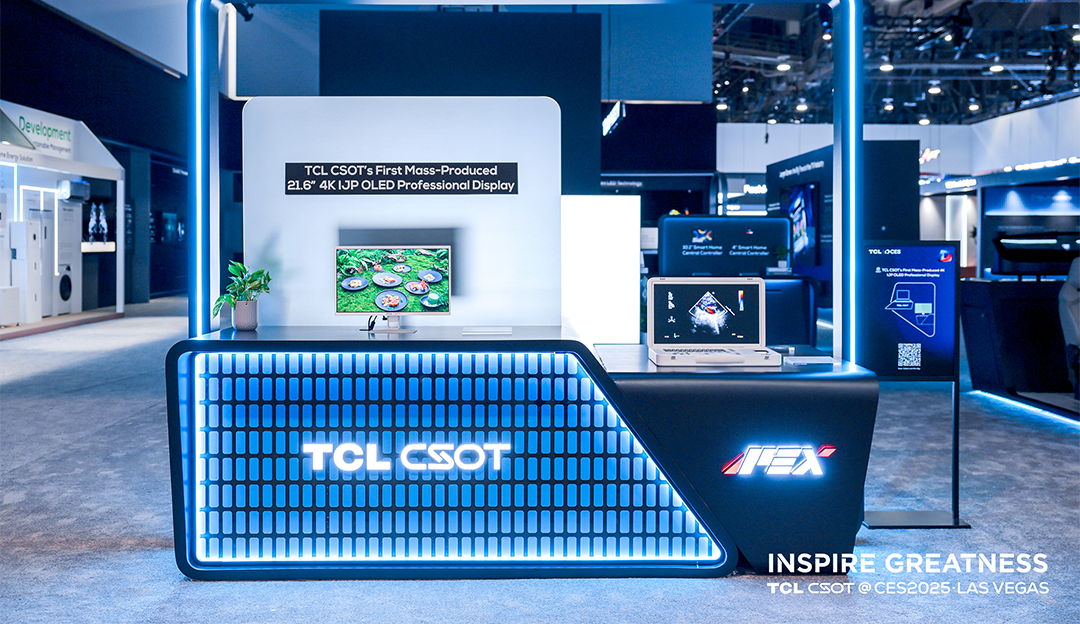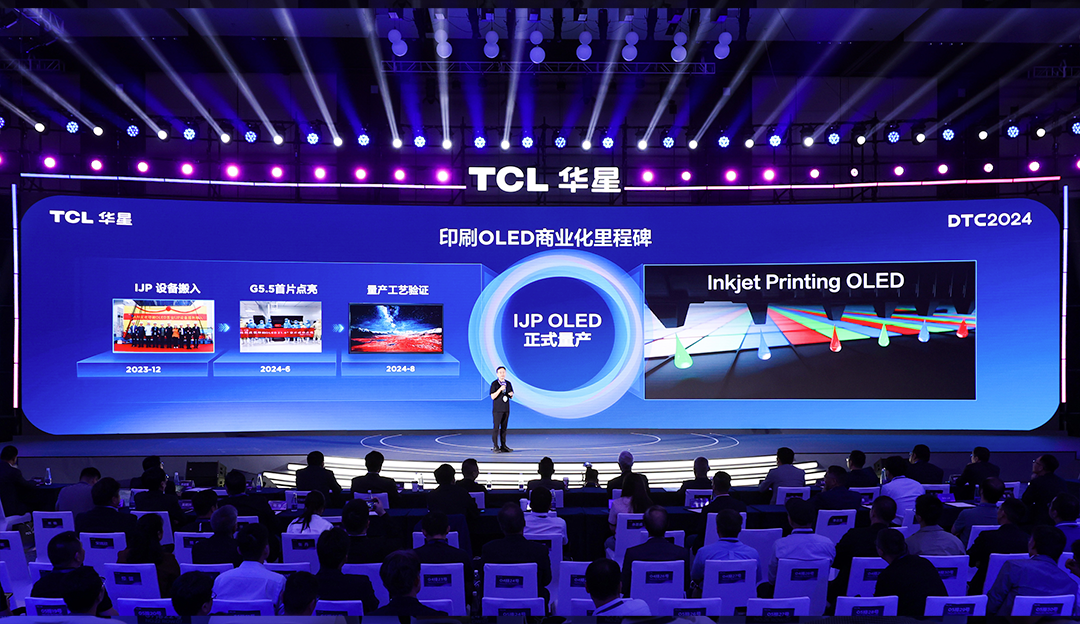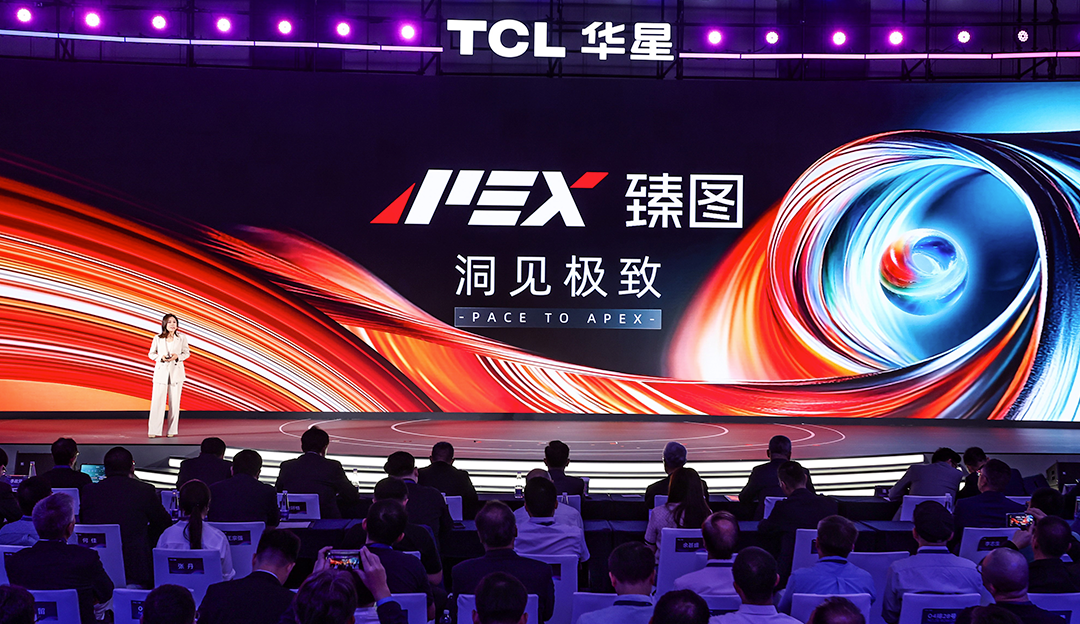Refreshing to catch up with the world’s first-class and surpass - Visiting China’s first independent and intelligent factory at controllable semiconductor display
Suzhou TCL China Star Optoelectronics Technology Co., Ltd. (hereinafter referred to as Suzhou TCL CSOT) is a global leader in semiconductor display field, formerly known as South Korea Samsung Display factory in Suzhou. After acquisition, it is now a wholly-owned holding factory of TCL CSOT. On September 23, 2022, the first semiconductor display intelligent factory fully deploying the self-developed CIM system was born with the successful completion of replacement project for its full stack CIM (Computer Integrated Manufacturing) system localization, marking a new level of Suzhou TCL CSOT intelligent manufacturing.
In August 2020, TCL China Star Optoelectronics Technology Co., Ltd. and Suzhou Industrial Park State Owned Assets Holding Development Co., Ltd. jointly acquired Samsung Display Factory in Suzhou of world-class manufacturing level two years ago. After this, Suzhou TCL CSOT mainly produced, processed and sold 32-inch to 65-inch medium and large size high-end liquid crystal display (TFT-LCD) panel and module products with ultra-high definition, curved surface, narrow bezel, and continues to expand TCL and even China’s competitiveness in medium and large size display business.
It is necessary for Suzhou TCL CSOT to further improve the efficiency of promoting new product, improve product quality and reduce production costs in order to maintain its competitive advantage in domestic and international market competition. These higher demands also require more in intelligent manufacturing, among which the CIM system known as Core Software of Semiconductor Intelligent Factory has the most critical impact on production. CIM is an intelligent process. The information collection, analysis and decision-making of each platform, secondary analysis, predictive analysis of big data models, and decision-making opinions are all completed by the system. The production efficiency is improved by making manufacturing automated, integrated, and systematic.
However, like many advanced manufacturing plants in China, Suzhou TCL CSOT CIM system also cannot keep up with the development of enterprises and market changes due to the high price of foreign software, inefficient services and outdated technical framework.
It is necessary for Suzhou TCL CSOT to have its own CIM system comparable to the world-class CIM system to support a new round of development and expansion. In this context, GETECH, a leading manufacturing digital transformation technology enterprise in China which belongs to TCL, is determined to work together with Suzhou TCL CSOT to solve this problem.
After lane change and surpassing, independent and controllable brings competitive advantage.
Semiconductor CIM system covers equipment management, production management and quality management, including more than 30 core systems and hundreds of subsystems. Industry insiders said that CIM system needs to be practiced and verified in the actual factory environment and the semiconductor process is extremely complex. The production requires thousands of equipment and hundreds of working procedures, which have high demand for the intelligence and algorithm capability of the control system. Therefore, the domestic R&D work in this field is slow.
Suzhou TCL CSOT and GETECH gave full play to their respective advantages in the face of challenges. Suzhou TCL CSOT has profound knowledge and rich experience in semiconductor manufacturing. And GETECH has mature industrial software development capabilities, especially in semiconductor CIM as a national bi-cross industrial Internet platform assessed by the Ministry of Industry and Information Technology.
The new CIM system jointly developed by both parties reached the level of the imported system it replaced, even performed better after several high-level functions were launched online, fully meeting the production management and operation requirements.
“The new CIM system enables the factory automation rate to reach the top level in China and completely get rid of the dependence on foreign software system. After the CIM system was fully autonomous and controllable, the system technical framework became more advanced and the system upgrade iteration more efficient, which will strongly support the capacity expansion and digital transformation of Suzhou TCL CSOT. Efficiency in manufacturing cycle, delivery cycle, yield and so on are improved significantly. The comprehensive per capita output value will be expected to increase and the production cost to decrease simultaneously, and the products will have stronger global competitiveness”, introduced by Ju Xia, general manager of Suzhou TCL CSOT.
Taking the quality optimization that is the biggest concern for semiconductor manufacturing as an example, factories can conduct more intelligent analysis of the defect causes in the production process through production data, effectively solving the pain points of traditional judgment by manual experience, improving product quality, and optimizing the input-output process.
In terms of flexible manufacturing, Suzhou TCL CSOT can mass produce customized products on demand. Through real-time data sharing, it can quickly respond to demand fluctuations, accurately control output, and thus reduce operating costs. In addition, the range of equipment stress is expanded and the product forms are more diversified through the workshop planning, upgrading and transformation, which is more suitable for future customer orders of multiple varieties and small batches.
Global initiative move – did the “brain replacement surgery” sensor-less
In addition to climbing the mountain of R&D, the CIM system also overcame many difficulties in the process of switching online.
In the normal plant construction period, the early production capacity was not high. And there was usually a transition period of about three months after the CIM system was launched, when the system’s perfection and stability would be gradually improved. However, the transition time left for Suzhou TCL CSOT’s new systems is zero. The new system needed to be gone online under the condition that the factory continued to maintain full production, so as to realize the “brain change” sensor-less, which greatly tested the group management ability of the delivery team for multi project.
“More than 30 sets of core systems must be successfully changed at one time, otherwise the product data will be disordered, the equipment cannot be moved, and the whole plant will be paralyzed. If there is a record, it will take at least 80 hours to fully recover. The daily operation cost of the plant is as high as several million Yuan, and even if it is shut down for one day, it will also cause heavy losses. In order to successfully complete these challenges, we must comprehensively and deeply understand the business scenarios, develop flexible and practical technical solutions and form detailed management projects”, introduced by Qu Jiehua, the IT director of the delivery team of GETECH.
In the past two years, the replacement of old systems had gone steadily. Hundreds of processes, thousands of business processes and tens of thousands of system functions were finished with zero failure by the project team of Suzhou TCL CSOT and GETECH in the long and complex deployment and implementation process of over 100 systems, from twin construction to virtual reality verification, a large number of business scenario simulations and mass production verification. And the launch of the new system will support the full production of the factory.
In April 2021, Suzhou TCL CSOT and GETECH completed the delivery of hundreds of MIS basic IT systems. On March 31, 2022, the change of MES system in m10 module factory was completed, and the task of full production was achieved immediately after the change. On September 23, 2022, the change of MES system in t10 fab plant was completed, marking the successful completion of the two-year replacement project for CIM system localization.
“The brand-new CIM system bears complete intellectual property rights, full chain technology capabilities, and can achieve independent and controllable upgrade and iteration. The mode of joint R&D between manufacturing enterprises and software enterprises has created a successful path for the leapfrog development of domestic software. The successful experience of sensor-less change has also demonstrated a new mode of transformation and upgrade of intelligent factories. This is something we are proud of, and also marks that the independent R&D capabilities and project management ability of Chinese enterprises have reached a high level”, said He Jun, CEO of GETECH.
Catch up with the lighthouse and surpass, strive to be the navigated “pacesetter” in China’s digital field
Recently, the Ministry of Industry and Information Technology issued the Notice on Organizing the Application for the Pilot Demonstration of Integrated Development of New Generation Information Technology and Manufacturing Industry in 2022, which first proposed the direction of building China’s own lighthouse factory - Digital Pilot enterprise. Digital Pilot enterprise will focus on the digital transformation of all elements, whole processes and whole ecology, and explore a new path for the transformation of manufacturing industry with strong technical strength, excellent business model, new management concept and high quality and efficiency as the industry transformation benchmark.
Suzhou TCL CSOT starts with a series of core production software, such as equipment control layer software, manufacturing execution layer software, quality control layer software, etc., and integrates the information of the production management system to achieve closed-loop management of the whole business process, such as dynamic resource management and control, lean production optimization, intelligent online detection, equipment dynamic management, and accurate quality traceability. It completely integrates the traditional isolated systems into a set of systems, which can be an example of factory digital transformation. Whether in terms of business value, innovation value, or technical capability, it is enough to catch up with or even surpass the lighthouse factory and demonstrate successful experience for factory digital transformation”, said Dr. Ding Xianfeng, who is the co-chairman of SEMI Information Control Standard Committee China Branch and expert in semiconductor intelligent manufacturing industry.
The completion of self-developed intelligent factory system of Suzhou TCL CSOT not only helps it achieve intelligent production and improve competitiveness to meet unknown challenges, but also opens up a new demonstration path for the digital and intelligent upgrade of China’s manufacturing industry, provides a benchmark case for making digital factories bigger, stronger and better, and becomes an industry intelligence force to promote high-quality development of the manufacturing industry.


